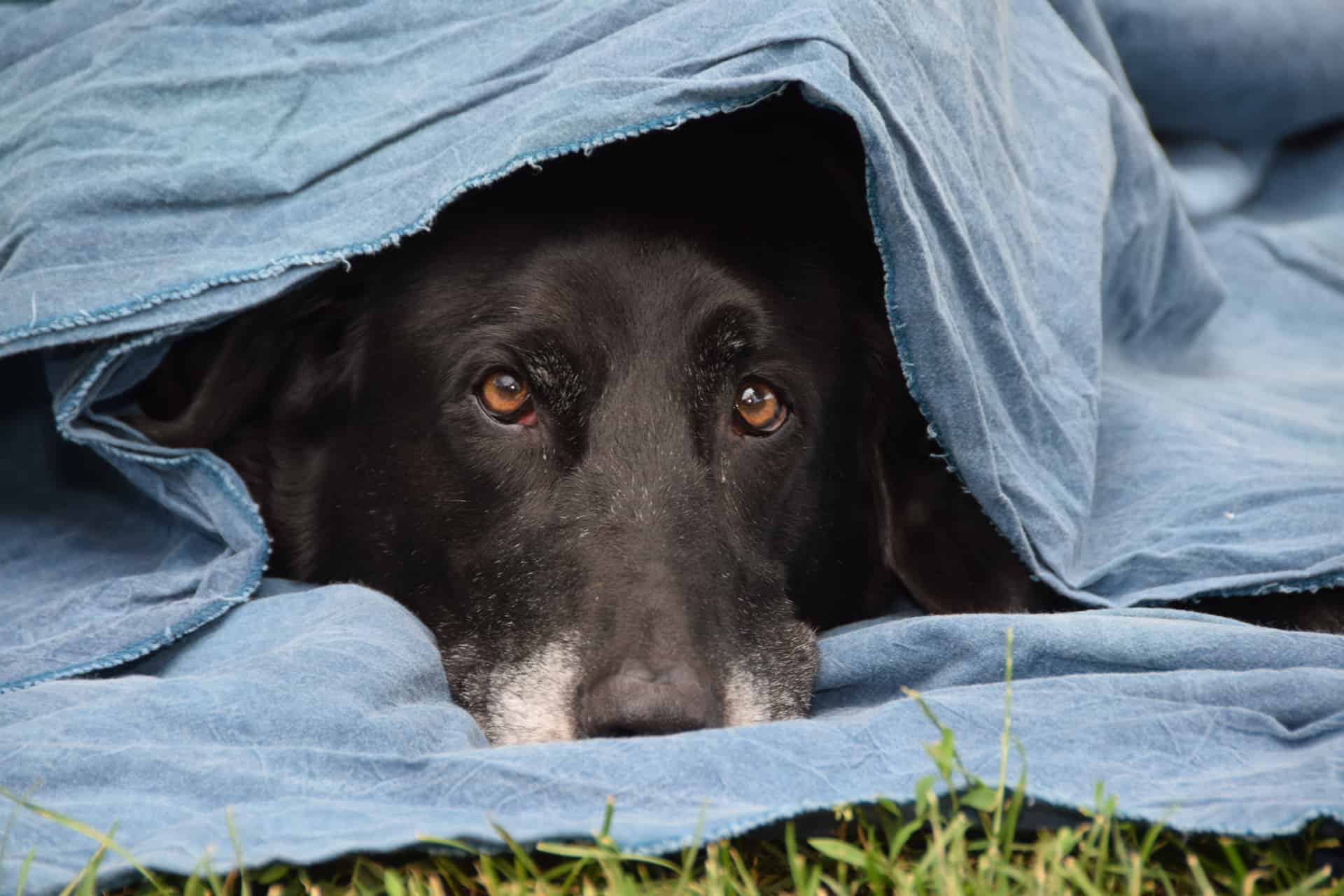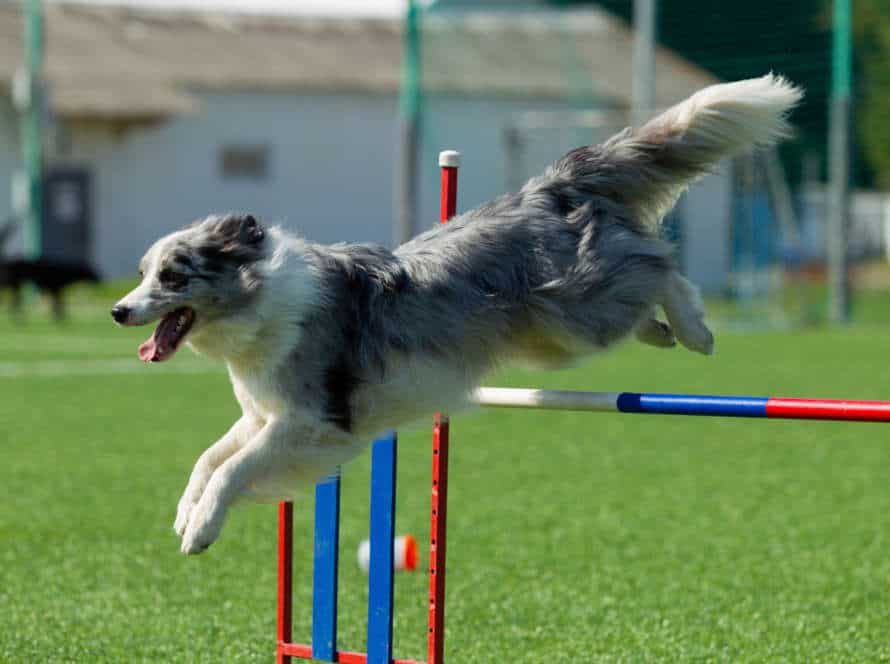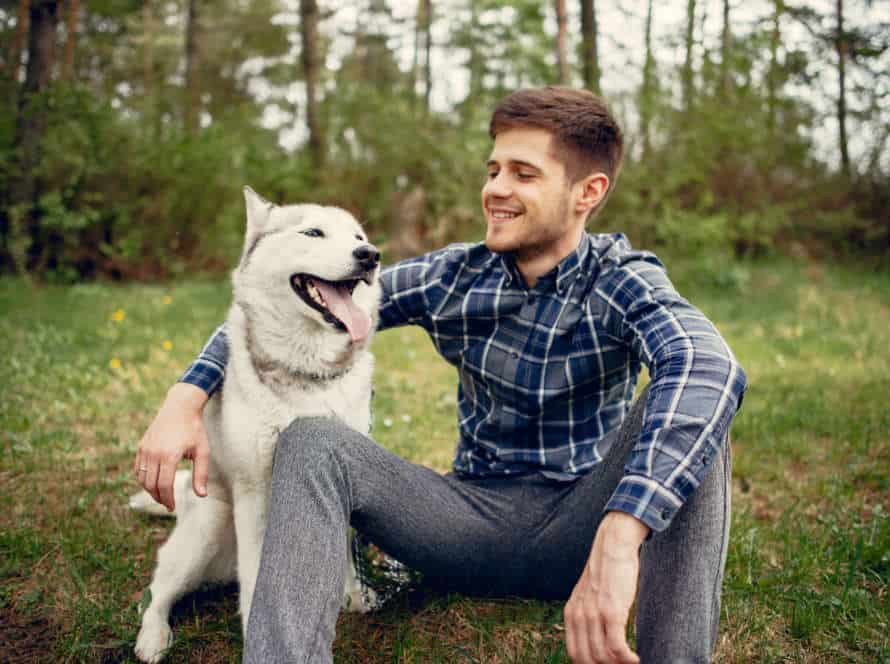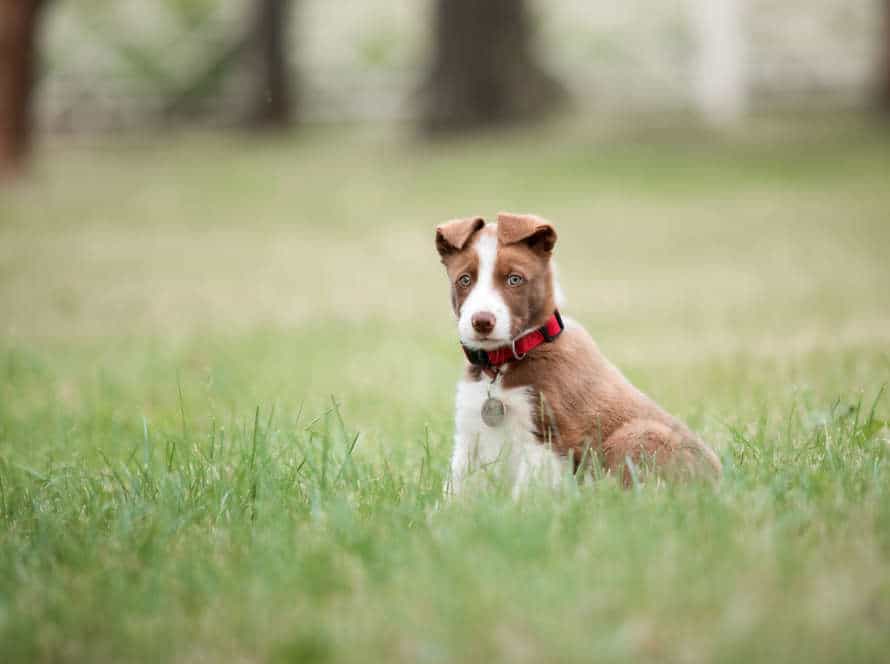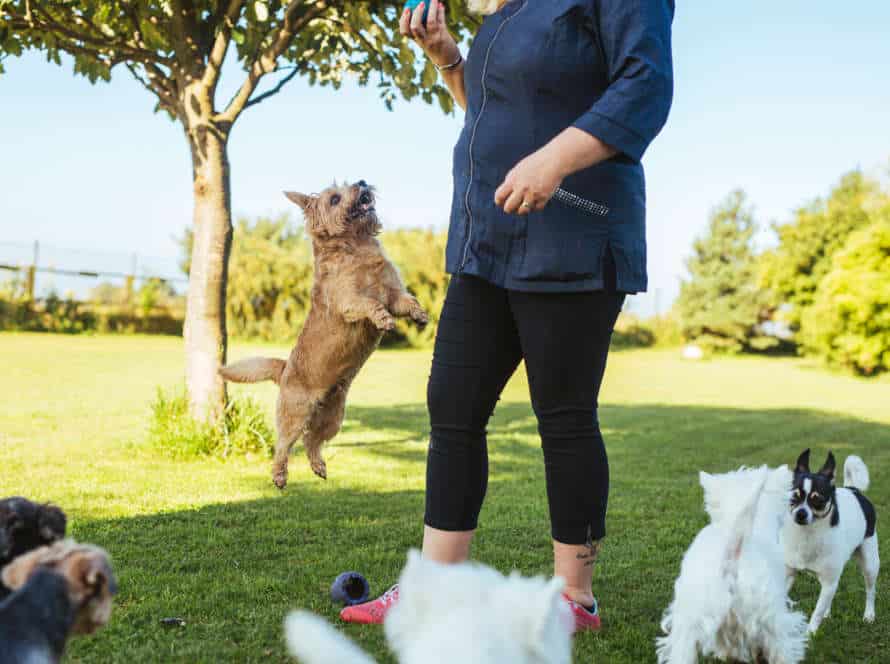Overcoming Past Trauma: Socializing Adult Rescue Dogs
When it comes to socializing adult rescue dogs who have experienced past trauma, it can be a challenge. But, it is rewarding! Here are tips to help:
- Go slow. Let the dog approach you at their own pace. Don’t overwhelm them with too much.
- Use Positive Reinforcement. Give treats and praise to show good behavior. This will help build trust between you and the dog.
- Get Professional Help. Talk to a vet or dog trainer that specializes in rehabilitation.
- Create a Safe Space. Make your home a safe and comfortable place for the rescue dog. Give them an area to retreat if they feel overwhelmed.
By being patient, understanding, and loving, you can help your adult rescue dog overcome their past trauma. They will learn to socialize in a safe and healthy way.
Understanding the Impact of Past Trauma on Adult Rescue Dogs
Adult rescue dogs can have a complicated history. This can have an effect on their socializing. To help these dogs, it is important to know their trauma and how it can influence them. Below, we will explore how to identify past trauma and how to manage it while attempting to socialize adult rescue dogs.
Understanding the different types of trauma that rescue dogs may have experienced
It’s essential to comprehend that adult rescue dogs may have endured different types of trauma. This could hugely influence their behavior and interactions with people and other animals. Examples of trauma rescue dogs may have faced include:
- Physical Trauma – from abuse or neglect, like broken bones or malnutrition. This can cause fear or aggression.
- Emotional Trauma – from fear responses, neglect, or lack of social contact with humans and other animals. This could lead to difficulty trusting people or anxiousness causing aggressive behavior.
- Social Trauma – Isolation or lack of exposure to social activities, making them fear and become anxious in social situations. This makes it hard for them to adjust to new places or socialize with people and other dogs.
Awareness of different types of trauma can help us be more tolerant and sympathetic when working with rescue dogs. Patient instruction, consistent training, and creating a secure and loving environment can help rescue dogs overcome their past trauma, and become tender and devoted pets in their new homes.
Identifying the signs of trauma in rescue dogs
Rescue dogs may express trauma in many ways. It’s crucial to spot the signs and help them transition to a new home. Here are a few common signs of trauma in adult rescue dogs:
- Fearful behavior – like shaking, hiding, or not wanting contact with people/animals.
- Aggression to people/animals.
- Separation anxiety or barking/whining.
- Poor appetite or eating too much.
- Being hyper-alert to sound/movements.
- Lethargy or depression.
To aid your rescue dog to overcome trauma, be patient and consistent. Positive reinforcement like training, exercise and socializing can help build trust. Consult a professional dog trainer/behaviorist to find a plan tailored to your rescue dog.
How past trauma can affect a rescue dog’s socialization process
Rescue dogs who’ve been through trauma often have a tougher time socializing and trusting humans and other animals. This can lead to fear, aggression, or distrust. It’s essential to show patience and provide understanding. Plus, proper training is key.
Introduce the pup to new people, places, and animals one at a time. Reward good behavior and make sure they feel safe. Positive reinforcement and desensitization can help build trust.
Don’t forget to give them plenty of love and support. Plus, make sure they have a predictable routine. This helps them feel secure.
Pro Tip: If you’re adopting an adult rescue with a past, get help from a certified dog trainer or behaviorist. They’ll create a socialization plan that works!
Helping Rescue Dogs Overcome Past Trauma through Socialization
Rescue dogs can have emotional troubles from their pasts, which makes it tough to relate to other dogs. But, there is hope – socialization can help them to trust again! In this article, we will look at ways to help rescue dogs socialize and form positive relationships with people and pooches.
Understanding the importance of socialization for rescue dogs
Rescue dogs have often gone through tough times before being adopted. So, socializing them is key for their happiness and fitting into their new home.
Socializing rescue dogs helps them cope with their fears and worries. It also gives them a chance to make great memories in unfamiliar places.
To socialize a rescue dog, here’s what you need to do:
- Introduce the pup to unfamiliar people, animals, and places gradually.
- Reward them with treats, praises, and playtime when they act brave.
- Repeat this regularly to build their trust in their new environment.
Socializing a rescue dog takes patience. But it’s essential for helping them forget their past and embrace their new life. Pro Tip – Ask for professional help and prioritize their safety when socializing them.
Creating a safe and comfortable environment for the rescue dog
Creating a secure, cozy environment for a rescue dog is key to help them conquer past trauma through socialization – specifically with adult dogs. Here are several steps to create a favorable atmosphere for your rescue pup:
- Offer Them Their Personal Area – Provide them with a designated secure area in your home where they can slip away to, whenever they feel uneasy or overwhelmed.
- Begin Socialization at Their Speed – Start with introducing them to a few people or pets at a time, slowly growing the number as they become comfortable.
- Utilize Positive Reinforcement – Use positive reinforcement techniques, like snacks, toys, and verbal compliments to help them link socialization with positive experiences.
- Normal Exercise and Playtime – Participate in everyday exercise and playtime with your rescue dog to help them release fear and tension.
- Endurance – Have patience and give them time to adjust to their new environment and socialize on their own terms.
Pro Tip: Consult a professional dog coach or behaviorist if you’re unsure of how to guide your rescue dog in overcoming past trauma and socializing properly.
Developing a plan for gradual and positive socialization
For adult rescue dogs, socialization is essential. It helps them to face past trauma and settle in their new home. When making a plan for gradual, positive socialization, the transition is easier for both the dog and the owner. Here are some tips:
- Start off easy – carefully and positively introduce your dog to sights, sounds and smells. Increase exposure little by little as they get more relaxed.
- Make it enjoyable – use treats, toys and compliments to reinforce good behavior and create positive memories.
- Take your time – don’t rush it or it may be too overwhelming. Patience is the key.
- Get expert help – if your dog is having difficulties, consult a pro dog trainer. They can provide guidance and create a custom socialization plan for your pet.
With patience and commitment, you can help your rescue dog to overcome their past and become a content and adjusted family member.
Techniques for Socializing Adult Rescue Dogs
Adopting a rescue dog as an adult brings rewards, yet challenges. These canines have endured trauma and dread, tending to struggle with different settings and people. Thankfully, distinct methods exist to assist these pups in overcoming their trepidation and fitting in.
Let’s dive into some of these socialization strategies.
Positive reinforcement training
Positive reinforcement training is a great way to help adult rescue dogs. It uses praise, treats and rewards to encourage good behavior. Avoid punishing bad behavior.
These tips will help you:
- Start with basic obedience – sit, stay, come.
- Use treats and toys to reward good behaviour.
- Be patient and consistent.
- Gradually introduce your dog to new social situations. Reward them for being calm and friendly.
With time, this training will make your rescue dog more confident, well-behaved and happy.
Exposure therapy
Exposure therapy is a method to help adult rescue dogs recover from prior trauma and become more sociable with people and other animals. How does it work? Start with small socializing experiences, like having a reliable companion or family member come over. Then, steadily increase the frequency and length of the socialization, while carefully watching your dog’s responses and giving them positive reinforcement. Be patient, consistent in teaching, and prepared to wait for progress. If needed, get professional guidance. Always keep your pup’s safety and welfare as top priority, and never force them out of their comfort zone.
Pro tip: Positive reinforcement, consistency, and patience are essential when using exposure therapy to socialize adult rescue dogs.
Behavior modification techniques
Behavior modification can help rescue dogs. It can help them forget their past trauma and socialize with humans and other animals. Techniques include:
- Counter-conditioning – Replacing negative responses with positive ones. For example, when a rescue dog is scared of someone’s hand approaching, they can connect it to a treat or pleasant experience.
- Desensitization – Exposing the rescue dog to low intensity stimuli, like sounds and objects. Gradually increase the intensity and reward them for staying calm.
- Clicker training – Use a clicker to show good behavior and reward them with something positive.
- Positive reinforcement – Praise and reward them for good behavior.
- Management – Set up their environment for success with crates, gates, and leashes. This minimizes chances for unwanted behavior.
It takes patience and consistency to modify a rescue dog’s behavior. But the result is a happy, well-adjusted pet. Pro tip – Consult a trainer or behaviorist for a unique plan for your rescue dog.
Challenges in Socializing Adult Rescue Dogs with Past Trauma
Socializing adult rescue dogs with past trauma can be tough. It takes patience and understanding to help them learn to trust people and feel safe in their environments. These dogs come from a place of fear and insecurity, so they need time and space to open up and adjust to their new home and the people around them. So, what are the challenges? And how do we meet them? This article will explore.
Managing anxiety and fear in rescue dogs
Rescue pups sometimes have past hurt that can make it tough to socialize them, causing anxiety and fear. Here’s how to handle it:
- Make a secure, chill atmosphere for your pup by setting up a routine and giving them a safe spot to relax.
- Carefully and gradually introduce new people and animals, giving your dog time to adjust and feel comfy.
- Use positive reinforcement, like treats and praises, to increase your pup’s self-confidence and make new experiences more enjoyable.
- Consider employing a professional trainer or behaviorist to design a plan that matches your pup’s individual requirements and past traumas.
With determination, understanding, and consistent effort, it is possible to assist rescue pups in overcoming their past traumas and having delightful, meaningful lives with their fresh families.
Identifying and addressing triggers associated with past traumas
Identifying past traumas’ triggers is vital in socializing adult rescue dogs. It helps them overcome their fears and trust again.
Common triggers and addressing them:
- Loud noises: Desensitize the rescue dog by playing recordings of the noise at a low volume. Increase the volume gradually.
- Crowded spaces: Start by introducing the dog to quiet places. Gradually increase the number of people and dogs around them.
- Physical touch: Sit calmly beside the dog until it’s comfortable with your presence. Then, start light petting and eventually grooming and handling.
Patience and consistency are key in helping a rescue dog recover from traumas. With time and effort, the rescue dog can learn to feel secure in its new home.
Working with professional trainers and behaviorists
Socializing an adult rescue pup with a past of trauma can be tough. But, it’s not impossible with help from an expert. Here’s why they can be useful:
- Professionals have the skill to study the dog’s behaviour, detect triggers, and create a plan designed for them.
- They can teach you to recognize your dog’s body language and answer to their needs correctly.
- In a safe and managed way, they can help your pup get used to new people, animals, and places.
- They’ll give you ongoing help and advice during the socialization process.
Remember: Patience, consistency, and rewarding the good behaviour are essential when it comes to socializing a traumatized pup. With assistance from an expert, you can make a secure and peaceful environment for your furry friend.
Conclusion: The Importance of Patience and Persistence in Socializing Adult Rescue Dogs with Past Trauma
To sum it up, when socializing adult rescue dogs with past trauma, patience and persistence are key. These dogs have experienced trauma, so may have trust and behavioral issues. Realizing that forming trust and regaining their confidence is a lengthy process and cannot be rushed is essential.
Here are some tips:
- Create a safe and calming environment for the pup.
- Set up a routine and offer consistency in training and socialization.
- Reward good behavior with treats, praise, and play.
- Don’t punish or scold, as it might worsen fear and anxiety.
- If needed, get help from a professional dog trainer or behaviorist.
Socializing an adult rescue dog with a past is difficult, but rewarding. With a patient and persistent attitude, you can help your furry friend surpass their past and look forward to a happier future.
Frequently Asked Questions
1. How can I help my adult rescue dog overcome past trauma when socializing with other dogs?
A: Start with small steps and positive reinforcement. Gradually introduce your dog to other dogs in a controlled environment, and reward good behavior with treats and praise. Seek the help of a professional trainer if needed.
2. Is it possible for an adult rescue dog who has experienced trauma to be happy and social with other dogs?
A: Yes, with patience and proper training, adult rescue dogs can overcome past trauma and learn to be happy and social with other dogs.
3. What are some signs that my rescue dog may be experiencing trauma when socializing with other dogs?
A: Signs of trauma can include avoiding eye contact, hiding behind objects or their owner, whining or growling, and displaying aggressive behavior.
4. What if my rescue dog is too traumatized to socialize with other dogs?
A: It’s important to respect your dog’s boundaries and limitations. While some dogs may be able to overcome their trauma, others may never be comfortable socializing with other dogs. In these cases, it’s important to provide plenty of love and attention to help them feel secure and happy.
5. Should I introduce my rescue dog to other dogs at a dog park?
A: It’s not recommended to introduce your rescue dog to other dogs at a dog park until they have been properly socialized and trained. Dog parks can be overwhelming and unpredictable, which can trigger past trauma and lead to negative behavior.
6. Can therapy dogs help adult rescue dogs overcome past trauma when socializing with other dogs?
A: Therapy dogs can be a helpful tool in socializing adult rescue dogs, but it’s important to work with a professional to ensure that it’s done in a safe and controlled environment. Therapy dogs can provide a calm and positive presence for your dog to interact with, which can help build their confidence and trust with other dogs.

